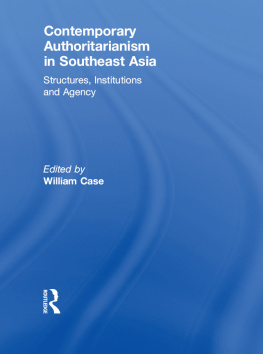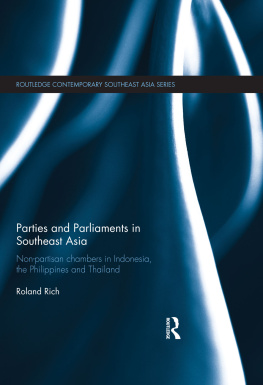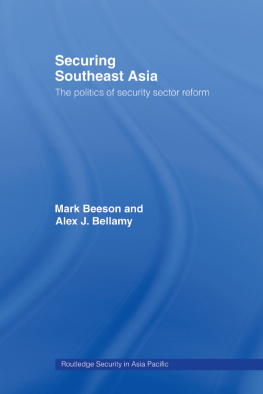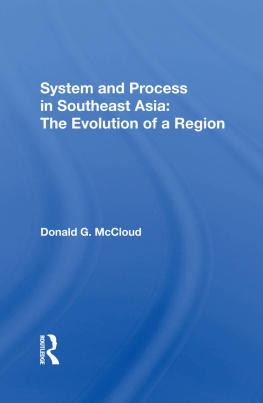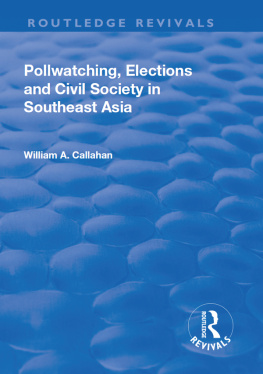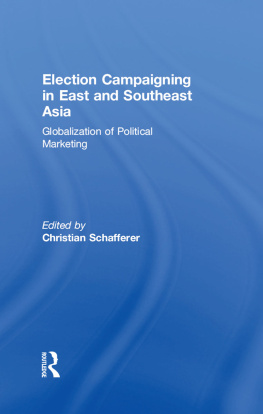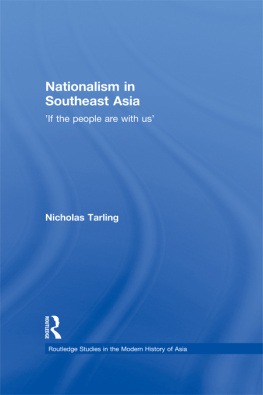Contemporary Authoritarianism in Southeast Asia
Over the past two decades, book-length analyses of politics in Southeast Asia, like those addressing other parts of the developing world, have focused closely on democratic change, election events, and institution building. But recently, democracys fortunes have ebbed in the region. In the Philippines, the progenitor of people power, democracy has been diminished by electoral cheating and gross human rights violations. In Thailand, though the former Prime Minister, Thaksin Shinawatra, scored successive electoral victories, he so committed executive abuses that he served up the pretext by which royalist elements in the military might mount a coup, one that even gained favour with the new middle class. And in Indonesia, lauded today as the regions only democracy still standing, the governments writ over the security forces has remained weak, with military commanders nestling in unaccountable domains, there to conduct their shadowy business dealings. Elsewhere, dominant single parties persist in Malaysia, Singapore, Vietnam, Cambodia, and Laos, while a military junta perpetuates its brutal control over Burma.
This volume, the first to bring together a series of country cases and comparative narratives about the recent revival of authoritarian rule in Southeast Asia, identifies the structural and voluntarist dynamics that underlie this trend and the institutional patterns that are taking shape.
This book was published as a special issue of The Pacific Review.
William Case is Director of the Southeast Asia Research Centre (SEARC) and Professor in the Department of Asian and International Studies at the City University of Hong Kong.
Contemporary Authoritarianism in Southeast Asia
Structures, Institutions and Agency
Edited by William Case
First published 2010 by Routledge
2 Park Square, Milton Park, Abingdon, Oxon, OX14 4RN
Simultaneously published in the USA and Canada
by Routledge
270 Madison Avenue, New York, NY 10016
Routledge is an imprint of the Taylor & Francis Group, an informa business
2010 Taylor & Francis
Typeset in Times by Value Chain, India
All rights reserved. No part of this book may be reprinted or reproduced or utilised in any form or by any electronic, mechanical, or other means, now known or hereafter invented, including photocopying and recording, or in any information storage or retrieval system, without permission in writing from the publishers.
British Library Cataloguing in Publication Data
A catalogue record for this book is available from the British Library
ISBN10: 0-415-55641-4
ISBN13: 978-0-415-55641-5
CONTENTS
William Case
Kyaw Yin Hlaing
Jonathan London
William Case
Michael K. Connors
Vince Boudreau
Jamie S. Davidson
Nathan Gilbert Quimpo
resilience in Thailand and Malaysia
William Case
Vince Boudreau is Professor in the Department of Political Science at the City College of New York where he also directs the Colin Powell Center for Policy Studies. He writes about social movements, political repression and Southeast Asia. His last book was Resisting Dictatorship: Repression and Protest in Southeast Asia. He is currently working on a book length treatment of the role social movements engaged the political process in post-transition Indonesia and the Philippines.
William Case is Professor in the Department of Asian and International Studies and Director of the Southeast Asia Research Centre (SEARC) at City University of Hong Kong. His research interests include comparative politics, regime types in Southeast Asia, and elite analysis.
Michael K. Connors is on leave from School of Social Sciences, La Trobe University, and currently teaches at the Department of Asian and International Studies, City University, Hong Kong.
Jamie S. Davidson is Assistant Professor of Political Science at the National University of Singapore.
Kyaw Yin Hlaing is Assistant Professor of Asian and International Studies at the City University of Hong Kong.
Jonathan London is Assistant Professor of Sociology in the Department of Asian & International Studies, at the City University of Hong Kong and is Director of the Southeast Asia Research Centres Viet Nam program.
Nathan Gilbert Quimpo is Associate Professor of Political Science and International Relations at the University of Tsukuba. His research and teaching interests include: democracy and development; conflict and peace studies; Southeast Asian politics; political corruption; civil society; and political and social movements.
William Case
Abstract In keeping with much analysis of Southeast Asian politics today, the papers in this special issue argue that it is less fruitful to study democratic transitions than authoritarian durability. At the turn of the 21st century, Southeast Asia featured three new democracies. But only Indonesia is still rated by Freedom House as politically free. Yet even here, the legislators and party leaders who have been thrust up by democratic change sooner engage with top bureaucrats and business tycoons in pursuit of largesse than produce public goods. In the Philippines, corrupt practices and human rights violations have grown so severe that the country lost its rating of free in 2007. And Thailands democracy was disfigured by executive abuses, then overturned through a military coup. This issue investigates, then, the new authoritarian practices that mar regimes in Indonesia, the Philippines, and Thailand, as well as older forms that have persisted or been reconstituted in Malaysia, Vietnam, and Burma. Where these papers differ from much recent scholarship, however, is in their extending study from historical and structural factors to elite-level voluntarism and relations.
By the mid-1990s, democracys third wave had marked two decades of progress. But even as many parts of the developing world joined in, Southeast Asia served up quite mixed results, prompting Donald Emmerson (1995: 227, 238) to classify it as the most recalcitrant region, steeply resisting both democratizing processes and their comparative analysis. Today, there are fewer countries in the world rated by Freedom House as politically free than there were when Emmerson wrote. But he now looks upon Southeast Asia with greater optimism, contending that the region is not immune to political change (Emmerson 2008: 79). Through a combination of political entrepreneurship (agency) and black swans (contingency, i.e., a consequential but unexpected event), he argues that more of Southeast Asias political regimes may soon be democratized. In addition, though the principle regional organization, the Association of Southeast Nations, is dismissed by most analysts as inutile for political reform, Emmerson (ibid.: 778) is encouraged by the liberal overtones, however faint, of its recently inked charter, suggesting that democratization may also be hastened by neighborhood effects.
In making this argument, Emmerson tones down the causality usually attributed in Southeast Asia to structural and institutional forces. He writes that democracys advance in Southeast Asia depends less on underlying preconditions than on political entrepreneurship of the right kind (ibid.: 79). He notes too the catalytic effects of black swans, in particular, the mis-

